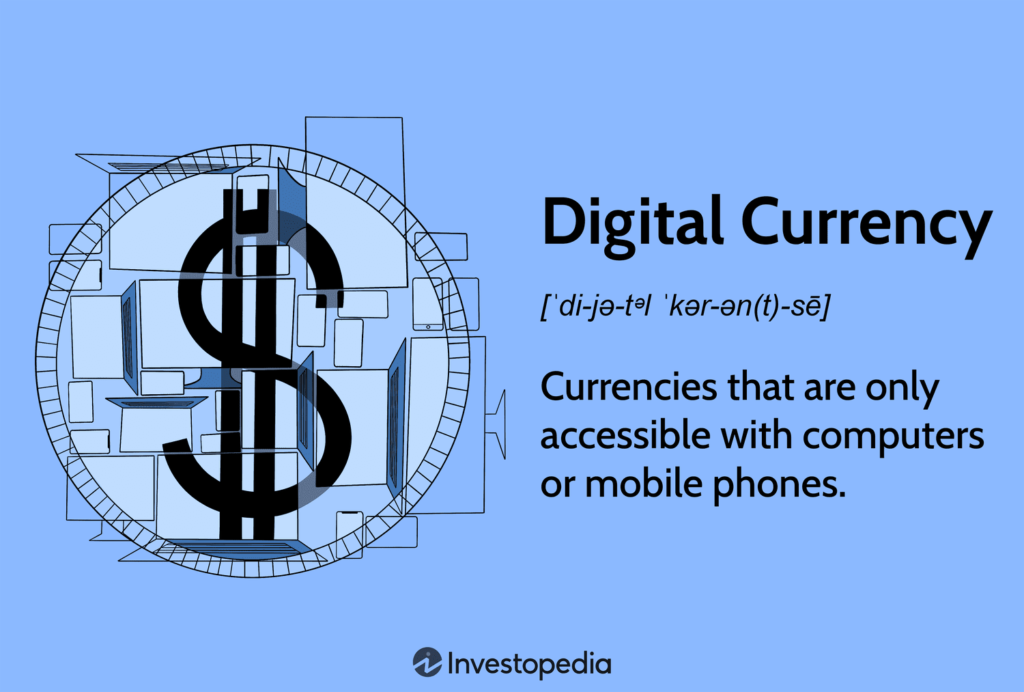
Cryptocurrency is reshaping the financial world, emerging as a decentralized digital asset independent of central banks. As digital finance evolves, cryptocurrency offers new ways for individuals and businesses to manage wealth, execute transactions, and invest. With its rise, more people are recognizing its potential to revolutionize global financial systems.
What is Cryptocurrency?
Cryptocurrency is a form of digital currency that leverages cryptographic techniques to secure transactions. Unlike traditional fiat currencies issued by governments, cryptocurrencies utilize blockchain technology—a decentralized, distributed ledger that records transactions across a global network of computers. This ensures transparency, security, and the elimination of intermediaries like banks.
Bitcoin, the pioneering cryptocurrency, was introduced in 2009 by an anonymous creator under the pseudonym Satoshi Nakamoto. Since then, thousands of alternative cryptocurrencies have emerged, each with varying features and applications. Prominent examples include Ethereum, Ripple (XRP), Litecoin, and Cardano. https://nadifmark.com
Benefits of Cryptocurrency
One of the key benefits of cryptocurrency is its decentralized nature. Unlike centralized financial institutions, cryptocurrencies function on peer-to-peer networks, removing intermediaries and reducing the risks of government interference or manipulation. This makes them especially appealing in regions with economic instability or high inflation.
Another significant advantage is the privacy and security that cryptocurrency transactions offer. Cryptography ensures that users can send and receive payments without revealing their identities, and blockchain technology guarantees that each transaction is permanently recorded and cannot be altered. This minimizes fraud risks and enhances trust in the digital financial ecosystem.
In addition, cryptocurrency transactions are typically less expensive compared to traditional banking systems. Because transactions are processed directly between parties, without intermediaries, the fees for international transfers are often significantly lower. This has made cryptocurrencies popular for remittances and cross-border payments.
For more detailed insights on the advantages of cryptocurrency, visit resources like CoinDesk and Investopedia.
The Risks of Cryptocurrency
Despite the benefits, cryptocurrency comes with certain risks. One of the primary concerns is market volatility. Cryptocurrency prices can experience drastic fluctuations in short periods, resulting in potential financial losses. For example, Bitcoin has seen several cycles of price booms followed by sharp declines.
Regulation is another issue. The decentralized nature of cryptocurrency means that traditional financial protections may not apply, leaving investors exposed to potential fraud and scams. It’s crucial to do thorough research before investing in cryptocurrencies, as fraudulent schemes are common in the space.
Security is also a concern. Although blockchain itself is secure, the platforms used to trade and store cryptocurrencies can be vulnerable to hacks. Numerous exchanges have been hacked, resulting in millions of dollars in lost assets. As such, it’s important to use secure wallets and trading platforms when dealing with digital currencies.
For further reading on the risks of cryptocurrency, check out articles from The Balance and Forbes.
Popular Cryptocurrencies and Their Use Cases
While Bitcoin remains the most popular cryptocurrency, other digital assets have gained traction, each serving unique functions.
- Ethereum (ETH): Ethereum is notable for its smart contract functionality, enabling developers to build decentralized applications (dApps) on its blockchain. It is widely used for launching new cryptocurrencies through Initial Coin Offerings (ICOs) and powering decentralized finance (DeFi) projects.
- Ripple (XRP): Ripple specializes in fast, low-cost cross-border transactions. It is utilized by financial institutions to enhance the speed and efficiency of international payments.
- Litecoin (LTC): Often described as the “silver” to Bitcoin’s “gold,” Litecoin offers faster transaction times and uses a different cryptographic algorithm, making it more efficient for smaller transactions.
- Cardano (ADA): Cardano focuses on sustainability and scalability in blockchain technology. It aims to provide a more secure and scalable infrastructure for decentralized applications and smart contracts.
For a comprehensive overview of top-performing cryptocurrencies, explore CoinMarketCap.
The Future of Cryptocurrency
The future of cryptocurrency looks promising as it continues to gain acceptance in mainstream finance. Large corporations like Tesla, PayPal, and Square have embraced Bitcoin and other digital currencies as payment options. In addition, several governments are exploring Central Bank Digital Currencies (CBDCs) to compete with or complement existing cryptocurrencies.
Blockchain technology is advancing rapidly, introducing new use cases for cryptocurrencies in areas like supply chain management and digital identity verification. However, regulatory hurdles persist as governments strive to strike a balance between innovation and consumer protection while managing cryptocurrency transactions and taxation.
For up-to-date information on emerging trends in cryptocurrency, visit resources like CoinTelegraph and CryptoSlate.
Conclusion
Cryptocurrency has transformed the financial landscape, offering individuals and businesses new ways to transfer and store value. Although it comes with risks, its growing acceptance and adoption suggest that cryptocurrency will continue to play a critical role in global finance. As technology evolves and regulatory frameworks develop, cryptocurrency is likely to become even more integral to how we conduct financial transactions.
Whether you’re considering investing in cryptocurrency or accepting it as a form of payment for your business, it’s essential to stay informed and carefully plan your approach. Understanding the market dynamics and maintaining security will help you make the most of this rapidly changing landscape.
For additional information and resources on cryptocurrency, visit CryptoCompare and Blockchain.com.
